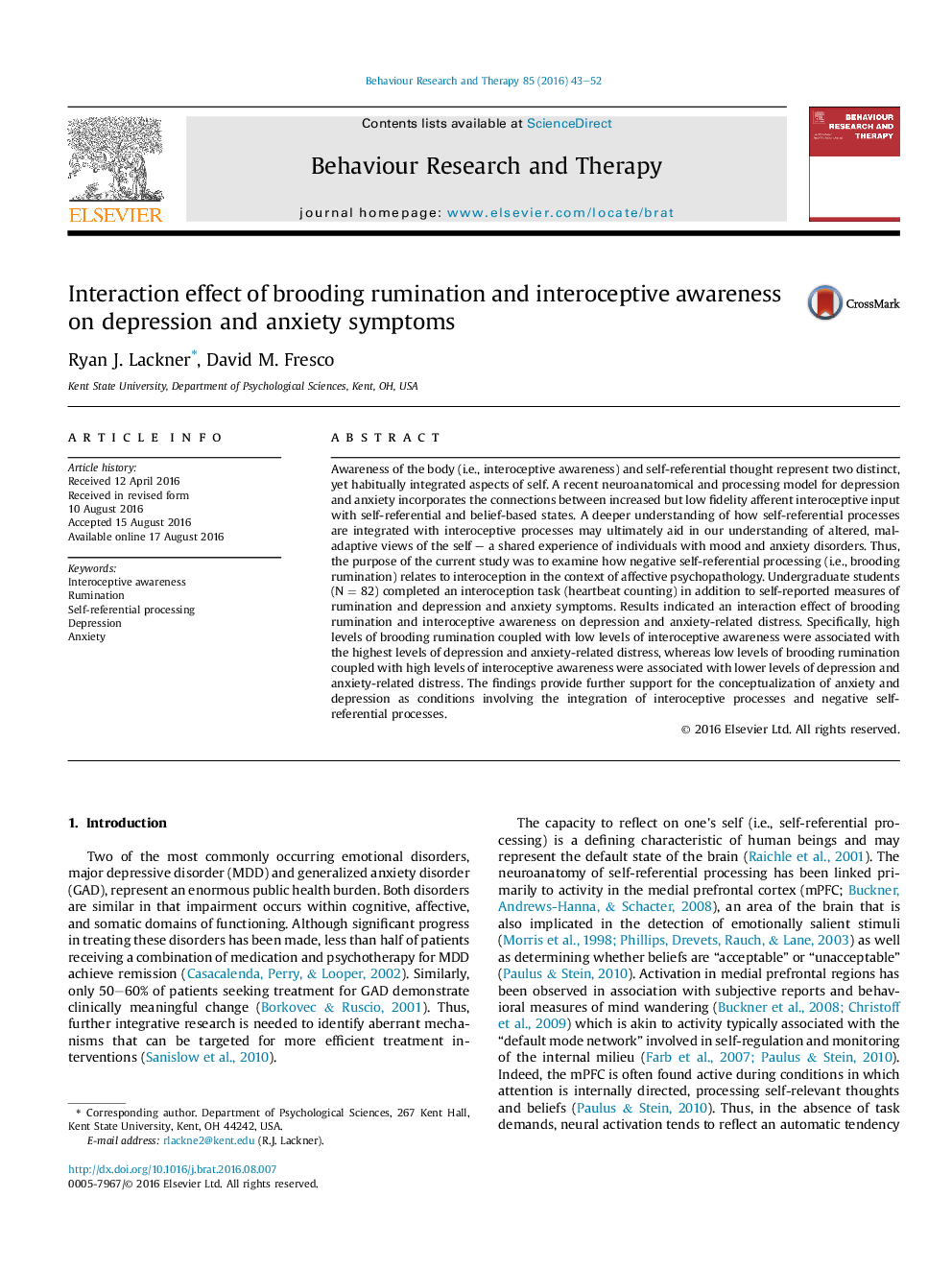| Article ID | Journal | Published Year | Pages | File Type |
|---|---|---|---|---|
| 901755 | Behaviour Research and Therapy | 2016 | 10 Pages |
•Rumination moderated the relationship of interoceptive awareness to depression and anxiety symptoms.•High rumination coupled with low interoceptive awareness was associated with the highest levels of affective symptoms.•Interoceptive awareness was negatively associated with both depression and anxiety symptoms.•Supports view of anxiety and depression as involving the integration of interoceptive and self-referential processes.
Awareness of the body (i.e., interoceptive awareness) and self-referential thought represent two distinct, yet habitually integrated aspects of self. A recent neuroanatomical and processing model for depression and anxiety incorporates the connections between increased but low fidelity afferent interoceptive input with self-referential and belief-based states. A deeper understanding of how self-referential processes are integrated with interoceptive processes may ultimately aid in our understanding of altered, maladaptive views of the self – a shared experience of individuals with mood and anxiety disorders. Thus, the purpose of the current study was to examine how negative self-referential processing (i.e., brooding rumination) relates to interoception in the context of affective psychopathology. Undergraduate students (N = 82) completed an interoception task (heartbeat counting) in addition to self-reported measures of rumination and depression and anxiety symptoms. Results indicated an interaction effect of brooding rumination and interoceptive awareness on depression and anxiety-related distress. Specifically, high levels of brooding rumination coupled with low levels of interoceptive awareness were associated with the highest levels of depression and anxiety-related distress, whereas low levels of brooding rumination coupled with high levels of interoceptive awareness were associated with lower levels of depression and anxiety-related distress. The findings provide further support for the conceptualization of anxiety and depression as conditions involving the integration of interoceptive processes and negative self-referential processes.
